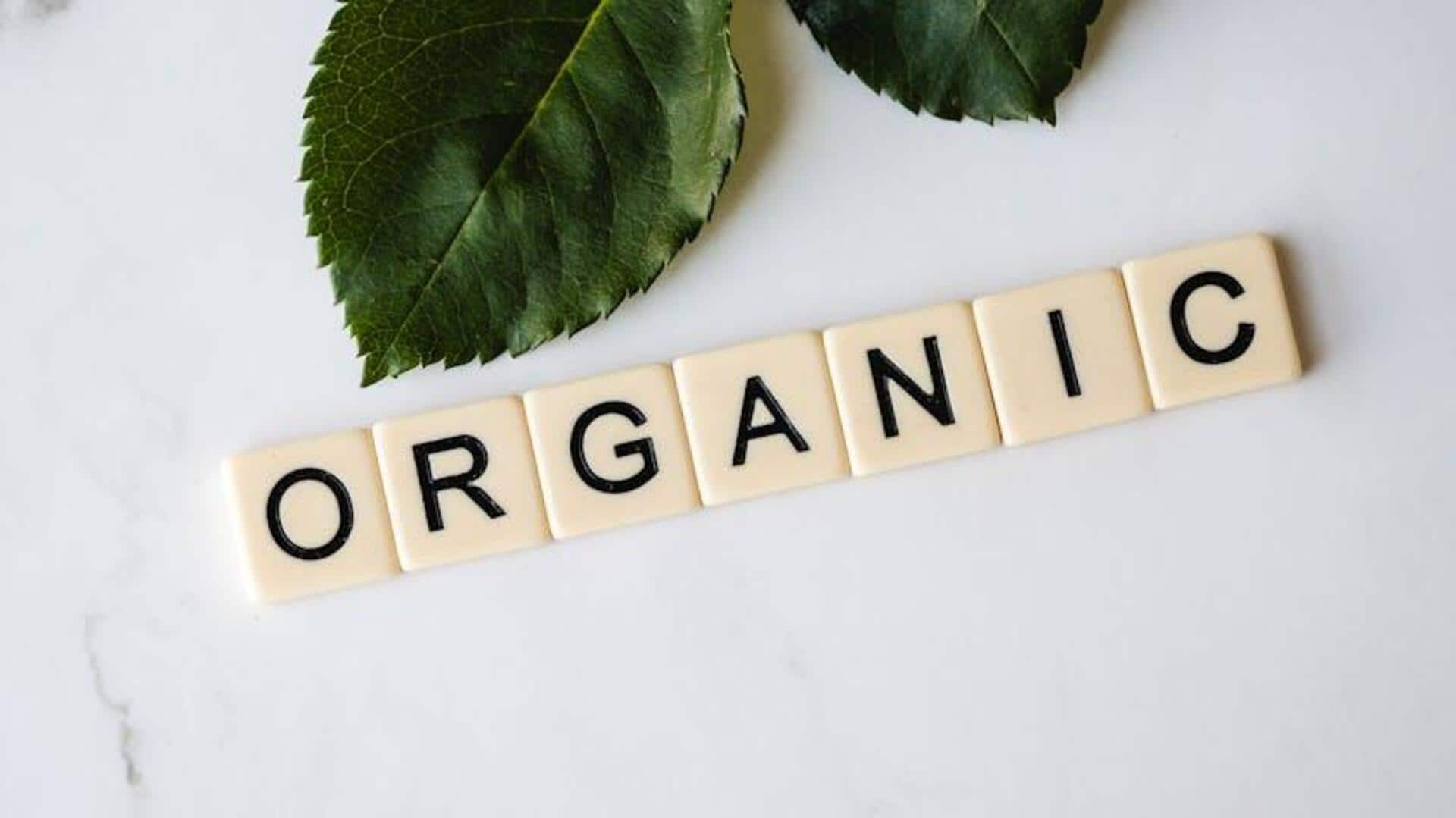
Debunking 5 myths about organic foods
What's the story
Over the years, organic foods have become increasingly popular, often perceived as a healthier and more eco-friendly option.
But, there are a number of myths surrounding organic foods that can easily mislead consumers.
In this article, we will debunk some of these common misconceptions, and give you a clearer understanding of what organic really means.
Health myth
Myth: Organic foods are always healthier
Another common misconception is that organic foods are healthier than regular ones.
Although organic produce may carry lesser pesticide residue, it doesn't make them any more nutritious.
Studies indicate that the nutritional value of organic and non-organic foods is pretty much the same.
The health benefits associated with organic foods may be a result of other factors, such as overall diet quality, rather than the food being organic.
Pesticide myth
Myth: Organic farming is pesticide-free
Many think organic farming doesn't use any pesticides at all.
In reality, organic farmers do use pesticides but they are usually derived from natural sources (as opposed to synthetic chemicals).
These natural pesticides have to meet certain regulatory standards to qualify as safe for use in organic farming.
Hence, while the type of pesticide differs, their presence in both farming methods is a fact.
Environment myth
Myth: Organic foods are always better for the environment
The belief that all organic farming practices are better for the environment is another myth worth busting.
While some techniques used in organic farming may contribute positively to soil health and biodiversity, others may demand more land or resources than conventional methods.
The environmental impact depends on several factors like crop type and local conditions, rather than just being called 'organic'.
GMO myth
Myth: Organic foods are free from GMOs
A common misconception is that all organics are GMO-free.
While certified organic products cannot contain GMOs, cross-contamination is possible during processing or transportation stages (shared facilities with non-organic products containing GMOs).
So, while efforts are made to minimize this risk within certification guidelines' limits—absolute freedom from GMOs can't always be guaranteed.
Price-quality myth
Myth: Higher price means higher quality
Another common myth is that high prices mean better quality when it comes down specifically to buying organic produce over conventionally grown options on store shelves today worldwide alike.
While there are price differences between the two categories, mainly due to production costs involved and certification processes, quality itself remains largely unchanged across the board, regardless thereof, ultimately speaking hereupon conclusively thus far indeed.